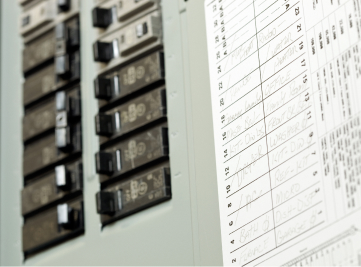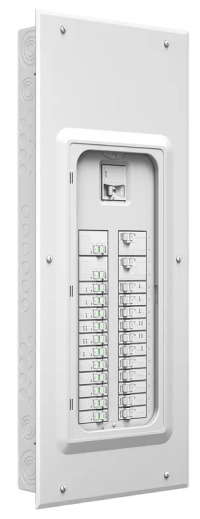Is Your Home’s Electrical Panel Still Safe?
Home electrical service panels often last many years before needing to be replaced or upgraded. When the time comes to replace an existing service panel, the reasons may vary. Motivating factors might include increasing the capacity of the panel to accommodate a new central or mini-split AC or heat pump system, a hot tub circuit, an expanded workshop, a basement finish, a home addition, age or condition of the existing panel, and more.
With periodic updates to National Electrical Code (NEC) and the introduction of components such as breaker switches that provide greater protection against electrical fires, increased safety may also come into play in a panel upgrade. And then there’s the Wi-Fi enabled electrical panel options that are gaining popularity. “Smart panels” provide enhanced safety, along with unsurpassed connectivity and hands-on monitoring and management of a home’s electrical system and its individual circuits.

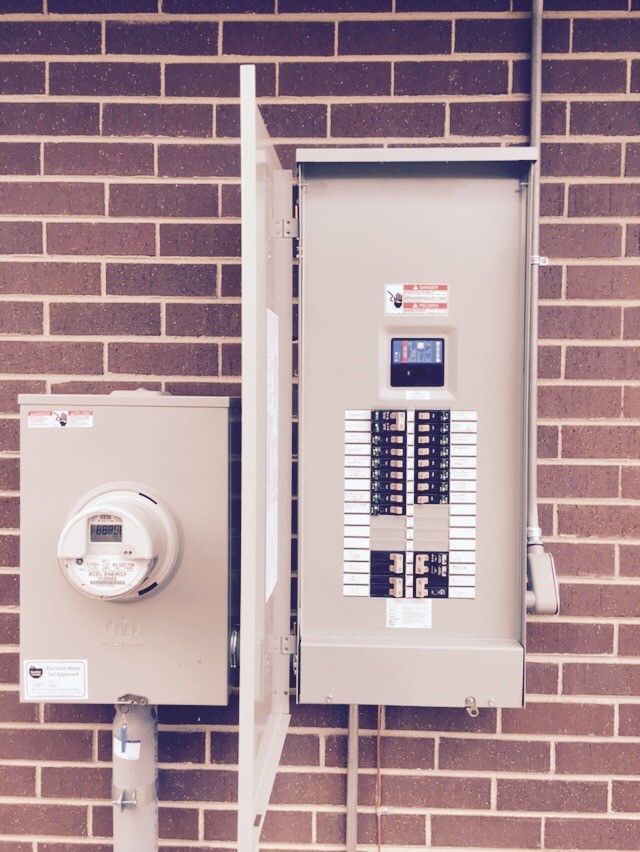 The primary purpose of your electrical service panel, old or new, basic or fancy, is to safely deliver electricity throughout your home. With that in mind, in this post, our electrical team at Save Home Heat Company would like to discuss how you can help ensure your electrical safety by having a routine safety inspection and tune-up performed on your panel.
The primary purpose of your electrical service panel, old or new, basic or fancy, is to safely deliver electricity throughout your home. With that in mind, in this post, our electrical team at Save Home Heat Company would like to discuss how you can help ensure your electrical safety by having a routine safety inspection and tune-up performed on your panel.
What is An Electrical Service Panel?
In brief, the electrical service panel in your home filters electricity from your utility company out to the different areas in your home through the circuit breaker switches, whose function is to safely regulate the electrical power provided to each circuit.
Where Home Electrical Service Panels Are Found
Service panels are often located in the garage on an exterior wall, in a closet, in the mechanical area, elsewhere in the basement, or even in the laundry room. In some cases, the panel may be installed outside, attached to the house in an approved weather resistant, watertight enclosure.
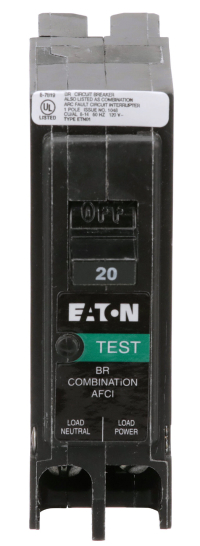
Identifying Your Electrical Service Panel
Normally, your electrical service panel is a large, gray metal box with a hinged door of some sort. It’s dimensions are approximately 24” to 36” high, 12” to 16” wide, and 3” to 5” deep.
When you open the door, you’ll probably see two vertical rows of breaker switches, each with an amperage rating written and embossed on the switch. There’s also a printed sheet glued inside the panel’s door, with numbered lines corresponding to each numbered breaker slot.
In these lines, the electrician has (hopefully) written which household circuit or appliance is controlled by the corresponding breaker switch. There’s plenty of single-slot breaker switches for 120 volt circuits, and also some double-slot switches for higher load, 240 volt circuits.
How Often Your Electric Panel Should Be Inspected & Tuned Up
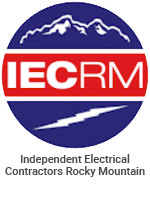 Like many other critical household components and systems, preventive maintenance of your service panel is crucial to the life expectancy of this, the heart of your home’s electrical system. For a number of reasons, there is not a clear rule-of-thumb in the industry as to how often an electrical service panel should be inspected and tuned up. The answer is impacted by a variety of factors, including the age and condition of the panel, where it’s located (some areas are dustier and busier than others), and if any potential issues have been identified previously.
Like many other critical household components and systems, preventive maintenance of your service panel is crucial to the life expectancy of this, the heart of your home’s electrical system. For a number of reasons, there is not a clear rule-of-thumb in the industry as to how often an electrical service panel should be inspected and tuned up. The answer is impacted by a variety of factors, including the age and condition of the panel, where it’s located (some areas are dustier and busier than others), and if any potential issues have been identified previously.
Many industry sources recommend a full inspection and tune-up of a service panel at least once every three to five years, but as mentioned above, this can vary depending on a range of factors. Some sources even recommend having a full inspection and tune-up performed annually, but this could potentially be a bit of overkill for some homes. Our team agrees that every 3 to 5 years at the longest is often about right–unless we have cause to recommend inspecting the panel more frequently.
What’s Involved In a Service Panel Inspection & Tune-Up?
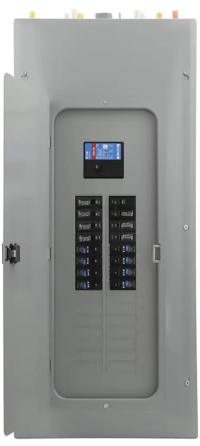 During an electrical panel inspection and tune-up, our electrician thoroughly cleans the inside of the breaker panel, carefully removing any dust and debris. In addition, all wire connections inside and to the panel board are inspected closely and tightened or reconnected, if necessary.
During an electrical panel inspection and tune-up, our electrician thoroughly cleans the inside of the breaker panel, carefully removing any dust and debris. In addition, all wire connections inside and to the panel board are inspected closely and tightened or reconnected, if necessary.
Next, all circuit breaker switches are “exercised,” which means cycling the power ‘on’ and ‘off’ from the switch, confirming that the breakers are functioning properly in both positions. It’s noteworthy that many manufacturers and industry sources recommend exercising all the breaker switches annually. Whether this relatively simple action is performed by your trusted licensed electrician or by a handy, hands-on homeowner is a decision left up to the homeowner. For safety as well as liability reasons, our team never urges a homeowner to perform this procedure themselves.
Finally, in this safety inspection, our electrician removes each breaker switch and inspects the switch and its connection to the panel bussing for loose components and hot spots/discoloration (the buss is the metallic strip inside the panel that interfaces with the breaker switch and distributes electricity). Each breaker switch is then reinstalled and proper function is confirmed.
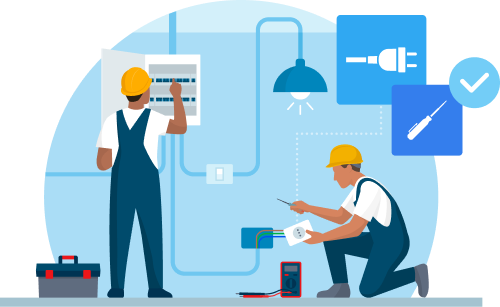
Safety & Upgrade Recommendations
During a tune-up visit, your trusted electrician may offer recommendations based on improving your safety, such as breaker or panel upgrades that reflect the latest NEC standards, or replacing breaker switches that are showing signs of age or wear and tear. Upgrades such as whole-house surge protection are another topic that our team often discusses with homeowners.
Helping to ensure your safety is always our top priority. Any advice we offer is always provided in an informative, zero-pressure manner. Of course, if we detect a significant safety concern that we feel should be acted on immediately, we clearly emphasize that in our verbal and written review of our findings.
The Most Common Reasons for Our Electrical Panel Replacements
Our electrical team performs many home service panel replacements around the Denver-Boulder area on a regular basis, throughout the year.
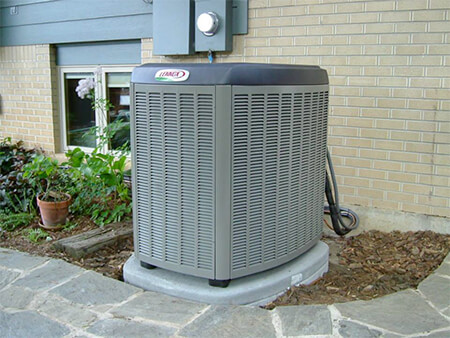
- A new central air conditioner or central heat pump
- Switching over from a gas-fired to an all-electric heating system
- Electric heating products such as mini-split heat pumps and infrared radiant heaters
- New home appliances such as a an all-electric oven and range
- A new Level 2 EV charging station
In addition to the above – and most importantly! – on a regular basis we identify service panels whose age or condition is such that, in order to ensure your safety, they should be replaced. No sales hype, but safety first, always!
What About Homes With Older Service Panels & Breaker Switches?
In many relatively older homes, there are currently plenty of conventional thermal breaker switches still in use, along with standard service panels; these breakers have been the industry standard for many years and in many case are doing just fine. While these switches do not meet current NEC standards for new homes, and major remodels and additions, that does not mean you need to run out and replace your panel and breakers in order to meet current code – that is, assuming that they are functioning properly and not showing signs of excessive wear. Regardless, it is important to understand that those switches do not meet the latest NEC safety standards. More on that below, when we revisit AFCI breaker switches.
What Service Panels Does Our Team at Save Home Heat Company Install?
 When our team at Save Home Heat installs a new service panel and breaker switches for a homeowner in our market we typically rely on established manufacturers such as Leviton and Eaton-Cutler Hammer, and the load centers they commonly supply for residential applications. A whole-house panel with a 200 amp rating will normally accommodate the electrical load needs of virtually all homes we work in, leaving plenty of room for expansion if the home’s electrical demand should increase in coming years.
When our team at Save Home Heat installs a new service panel and breaker switches for a homeowner in our market we typically rely on established manufacturers such as Leviton and Eaton-Cutler Hammer, and the load centers they commonly supply for residential applications. A whole-house panel with a 200 amp rating will normally accommodate the electrical load needs of virtually all homes we work in, leaving plenty of room for expansion if the home’s electrical demand should increase in coming years.
AFCI Breakers Are Now Required in New Service Panels
As alluded to above, ACFI breaker switches are now required by NEC in new service panel installations in new or existing homes. These breakers, an advancement in recent decades, are designed to also detect conditions that may cause electrical fires, as opposed to just short circuits and electrical shocks. If your home was built before these switches started becoming required in most home circuits about a decade ago, we recommend talking with your trusted electrician to learn more.
Smart Panel Options
For homeowners who would like to be connected to their home’s electrical system through their Wi-Fi devices and get real-time data about their energy use, along with other management and notification options, a smart electrical panel is an option worth learning more about.
While these products are slowly gaining traction, interest is steadily growing in what they bring to the table for “well-connected” households. If Wi-Fi connectivity is in your wheelhouse, we recommend learning more.
How Homeowners Can Help Ensure Their Electrical Safety!
In addition to having your service panel inspected and tuned up on a routine basis, there are a number of things that you as a homeowner would be wise to keep in mind and be on the lookout for around your home.
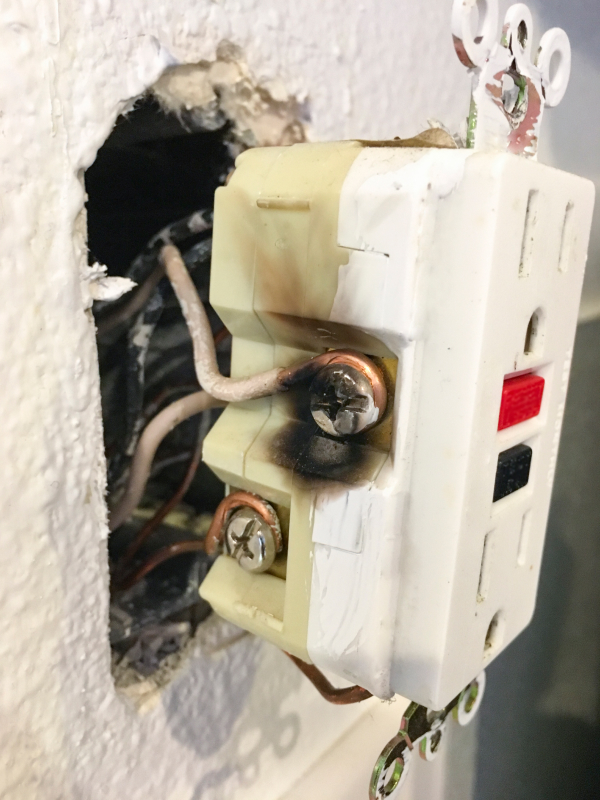
- Do you have several or many extension cords being used regularly?
- Is the insulation on the outside of these cords showing signs of deterioration?
- Do appliance or extension cord male or female plugs that appear to be in good condition get very hot (a little warm is not unusual) when in use?
- Do you detect a burnt smell or unusual odor coming from electrical outlets or the power connections on various appliances or devices?
- Do lights flicker or dim noticeably on a regular basis?
- Do specific circuit breaker switches consistently ‘throw’ and need to be reset in the service panel?
- Are you seeing sparks, hearing buzzing sounds, or getting shocks from your electrical system?
- The same as above goes for GFCI electrical outlets: Do they routinely trigger for no observable reason? (Contact with water or high moisture levels qualifies as an observable reason: in that case your GFCI outlet is doing its job!
If you answered a resounding “yes!” to any of the above questions, if it’s not something as simple as replacing an old cord or appliance, or removing excessive load from an outlet, our team recommends reaching out to your trusted electrician right away for professional advice. In the Boulder-Denver metro area, Save Home Heat responds promptly and professionally to these sorts of calls.
Trusted Denver-Boulder Electrical Panel Services
When was your home’s service panel last inspected? That’s probably the first and most important question you should ask yourself when thinking about your home’s electrical system. If it’s been too long, now is time to schedule an inspection and tune-up.
In the Boulder-Denver metro area, for professional, experienced residential electrical service, whether it’s a new service panel, a switch replacement, or any of a wide range of home electrical repairs and upgrades, please reach out to our team at Save Home Heat Company today for electrical service you can rely on. Installation quotes are always highly informative, low-pressure, and free.
Please contact me to schedule a service panel inspection or a free replacement quote!

